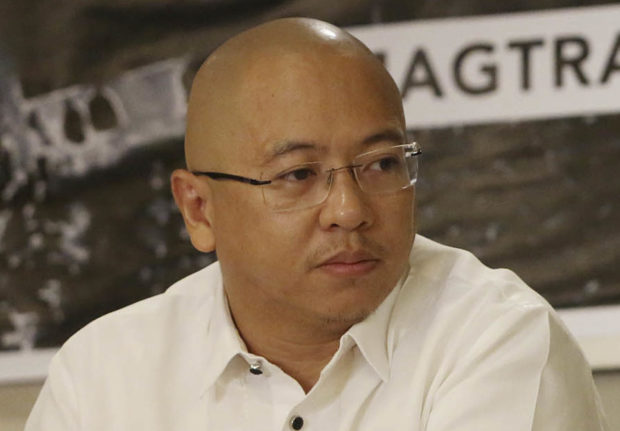University of the Philippines (UP) Law professor and former Solicitor General Florin Hilbay said the Senate should consider asking for a rehearing on the Supreme Court (SC) decision granting the quo warranto petition against Chief Justice Maria Lourdes Sereno, urging the public to “stop demonizing” justices who ruled in favor of the bid to oust Sereno.
“It is a good reason to have a rehearing,” Hilbay said at a news forum at UP Hotel in UP Diliman.
“It’s unusual, but not impossible, for the court to have a second hearing of the case,” Hilbay said.
“For now, we have a live case, and the case is not yet over,” he said.
“Impeachment is a political process. (As long as) the case is alive, I hope we do not think about talks on impeachment yet. When you file an impeachment and you say the justices committed culpable violation of the constitution, betrayal of public trust, parang nilagay mo na sa purely political any legal case,” Hilbay said, noting the justices’ votes on the petition are very close.
With a vote of 8-6, Hilbay said there’s a clear case for a potential reversal of the decision.
“A lot of people believe in the cause that the Constitution should be followed. We should follow that process despite our disappointments and frustrations with the Court. We only need 1 or 2 votes to reverse. Clear reversal would be two votes,” he said.
“Filing impeachment cases against the justices means one no longer believes in the capacity of the justice system to dispense justice,” he said.
“We should not demonize the members of the Court every time we disagree with their decision. There are lots of decision in which we disagree. If we demonize the justices, how can we have a rational conversation on the law and the constitution? That’s not how it’s done. Otherwise, we might as well take up arms and rise up against the government,” Hilbay added.
Larger picture
He said a rehearing of the case would give justices time for a “sober second thought.”
He said it could convince justices to “see a larger picture here.”
“This is not about one person, that their judgment may have already been clouded given the personal dynamics,” Hilbay said.
A “traditional understanding” of the Constitution limits the process of ousting Supreme Court justices only to impeachment and conviction by the impeachment court.
Hilbay said the Judicial and Bar Council (JBC), which screens applicants for Supreme Court justices and Chief Justice, was not heard in hearings on the quo warranto case filed by Solicitor General Jose Calida.
The JBC had approved the application of Sereno for Chief Justice and submitted her name to then President Benigno Aquino III.
Senate snubbed
The Senate was not even required to comment, Hilbay said.
“It is very important that the Senate should act as an institution,” Hilbay said.
The Senate President, he said, can go to the Supreme Court since majority of senators had signed a resolution urging the tribunal to review its decision on Calida’s quo warranto case.
Hilbay said calling for the impeachment of justices who voted in favor of the quo warranto case was inadvisable at this time because a motion for reconsideration was still being heard by the high court.


